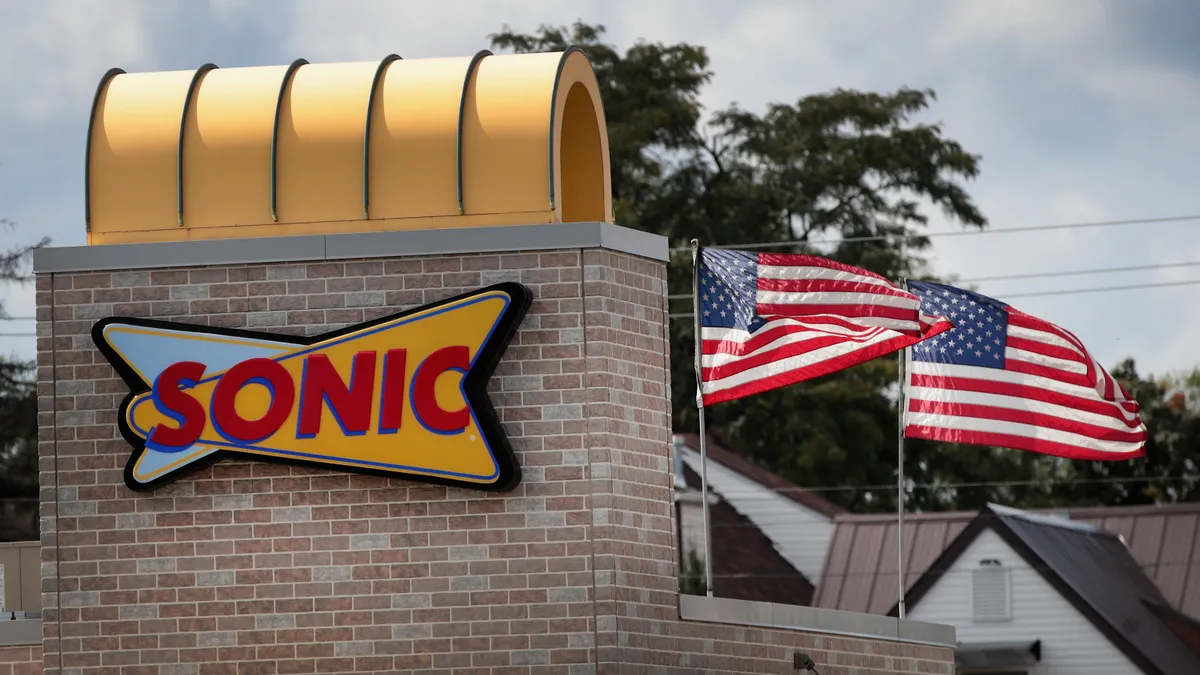Dive Brief:
- SDI of Neil LLC, the owner and operator of six Sonic Drive-In locations in Nevada, paid $71,182 in civil penalties for allegedly allowing 14- and 15-year-olds to work more hours and at times not permitted by federal child labor regulations, the U.S. Department of Labor announced May 30.
- Following an investigation, the DOL’s Wage and Hour Division found that SDI and its owners violated more than 170 child labor provisions of the Fair Labor Standards Act at the Reno-area locations, the DOL said. In addition to allegedly letting young teens work impermissible hours, SDI allegedly let them operate manual deep fryers, a prohibited task considered hazardous for workers under 16, according to the DOL.
- At one location, SDI allegedly hired a 13-year-old, which is under the legal age for employment in restaurants and other nonagricultural jobs, the DOL added. “The Fair Labor Standards Act allows for developmental experiences but restricts the employment of young workers in certain jobs and provides for penalties when employers do not follow the law,” WHD Las Vegas District Director Gene Ramos stated in the announcement. The division also recovered $274 in overtime back wages and liquidated damages for two young workers, the DOL said.
Dive Insight:
This case reminds employers gearing up for summer hiring to make sure managers are trained on the FLSA’s child labor laws, a “best practice” the DOL recommends for protecting teen workers from injury and avoiding liability under federal law.
The requirements vary by industry, as outlined on the DOL’s website. They allow 14- and 15-year-olds to work in regular and fast-food restaurants outside of school hours for no more than 3 hours a day on a school day and up to 8 hours a day on a nonschool day, according to the DOL.
During the school year, teens under 16 can work between 7 a.m. and 7 p.m.; between June 1 and Labor Day, they can work until 9 p.m.
Federal law also prohibits 14- and 15-year-olds from performing specific restaurant/fast-food jobs considered hazardous for young teens. For example, they can be cashiers, wait on and “bus” tables, use a vacuum cleaner and operate toasters, coffee grinders and milk shake blenders, a DOL guidance states. But they can’t perform baking activities, work in freezers or operate food slicers, grinders and processors.
Child labor violations are an increasingly major concern for the feds; since 2018, child labor violations have increased 69%, according to the DOL. In eight Southern states alone (Alabama, Florida, Georgia, Kentucky, Mississippi, North Carolina, South Carolina and Tennessee), from fiscal years 2020 through 2022, the WHD assessed employers more than $2.8 million in penalties and conducted more than 500 child labor investigations affecting nearly 2,900 minors, the DOL said in April.
The restaurant, retail, construction and amusement industries are common offenders, the DOL noted. Violations typically involve teens under 16 working outside of federally allowed hours, teens under 18 being assigned prohibited or hazardous jobs, and employers failing to keep accurate records for youth workers, the agency said.
In March, heeding the DOL’s call for more severe penalties, Congresswoman Hillary Scholten, D-Mich., and Nancy Mace, R-S.C., introduced the Justice for Exploited Children Act (H.R. 2388).
The bill would raise the maximum fine for violating child labor standards to $132,270 from the current maximum of $15,138 for offenses that don’t result in serious injury or death. For those that do, the maximum fine would be raised to more than $600,000 from the current $68,801.
Sen. Brian Schatz, D-Hawaii, introduced a similar bill, the Child Labor Prevention Act. Both bills are still in committee.
A third bill, introduced by Senators Cory Booker, D-N.J., and Peter Welch, D-Vt., in April, followed the DOL’s recovery of $1.5 million in civil penalties from Packer Sanitation Services for allegedly illegally employing more than 100 minors, some as young as 13, in meatpacking plants in eight states.
Booker’s proposal, the Child Labor Exploitation Accountability Act (S. 1288) would crack down on corporations that exploit workers and children in the food industry and require companies competing for contracts with the U.S. Department of Agriculture to disclose labor and worker safety infractions, according to Booker’s website.
The bill would also prohibit the USDA from contracting with companies that have committed egregious violations or contracted with vendors that have failed to rectify their violations.
Meanwhile, a growing number of state lawmakers are proposing and passing legislation that loosens state restrictions on employing teen workers, according to findings by the worker advocacy group Economic Policy Institute.
As of April, 11 states had “moved to extend working hours for children, eliminate work permit requirements, and lower the age for teens to handle alcohol or work in hazardous industries,” Florida Phoenix recently reported.











